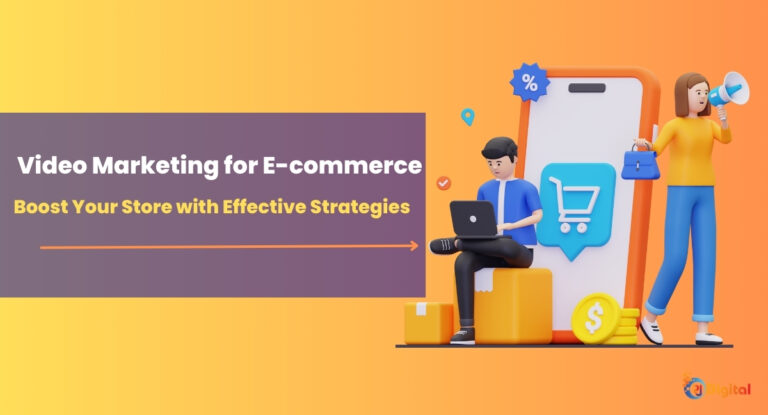“I will not be impressed with technology until I can download food from the internet,” one wise (and unknown) person is quoted as saying.
Perhaps one day, but for the time being, we must make do with ordering almost everything we require online. eCommerce, known as the process of buying and selling goods (or services) over the internet, has become a convenient shopping option for millions of people worldwide, which most businesses in every industry have quickly recognized and embraced.
Covid-19 forced those who had not yet decided to reconsider their decision. Ecommerce is no longer a pipe dream but a necessity for survival.
According to Statista, retail eCommerce revenues will exceed USD 431 billion in 2020. By 2025, income will exceed 563 billion US dollars.
How can eCommerce businesses handle such rapid growth while exceeding customers’ expectations?
NetSuite Suitecommerce developer believes that businesses must invest in an integrated cloud ERP and digital commerce solution to mature and grow into enterprise-level organizations.
Before we get into the specifics of this seamless NetSuite eCommerce Services, let’s first define cloud ERP software.
What is Cloud ERP?
The term “cloud ERP software” refers to software-as-a-service (SaaS) that enables users to access Enterprise Resource Planning (ERP) software via an internet connection. A cloud-based ERP solution serves as an organization’s system of record. Data from financial, distribution, CRM, and other systems converge in real-time within the ERP.
The ERP serves as a centralized repository for the company’s data, integrates business processes, and provides employees with a “single source of truth.” Furthermore (and most importantly), users can access the system at any time and location using their browser-enabled device.
Six Future Benefits of Moving to Cloud ERP
The top eCommerce businesses that use on-premises solutions are stuck dealing with problems from the past. However, moving to the cloud ERP can prepare you for future success. Here are the top six future benefits of moving to the cloud ERP:
- Cloud systems can help to streamline deployment strategies and avoid ERP implementation pitfalls.
It has been challenging to coordinate and plan the rollout across systems and departments, and these high-profile ERP disasters frequently occur during the implementation stage. An on-premises ERP deployment is often a lengthy and painful process that leaves each department grappling with its problems while the IT department scrambles to keep up. Costs mount, implementation issues cause production halts or slowdowns, and innovation comes to a halt.
It is intended that cloud ERP software deals directly with these issues. Using these systems, you can create solutions that are more responsive, adaptable, and simple to implement. On-premises deployments can take up to a year, whereas cloud ERP deployments typically take three to six months. As most companies are aware, even the best resources can’t always rescue poor-performing software, and this is true even for small businesses with limited time and resources.
- A cloud ERP system is a more secure and safe place for corporate data.
Security is a significant concern with cloud-based applications, and it is one of the main reasons why some businesses continue to rely on legacy on-premises ERP systems. There is a widespread belief that the cloud cannot provide stability or security to an on-premises ERP system—but this is becoming increasingly untrue.
Today’s top cloud ERP systems offer a suite of security tools comparable to any on-premises system, and many even provide some additional benefits that on-premise systems do not always provide:
- System-wide, simultaneous, automatic updates fix security flaws without requiring users to take further steps.
- Multiple layers of redundant fail-safes and backups
- A team of cloud security experts and safeguards systems.
Furthermore, staying current with technology is vital to maintaining a secure system. While some organizations continue to use on-premises legacy ERP systems, these systems are becoming increasingly obsolete.
The caveat is that cloud systems place more security responsibility on employees’ shoulders. Because a cloud-based system allows many employees to access ERP data at any time and from any location, it is their responsibility to avoid potential security risks such as exposing data on unsecured public Wi-Fi networks.
Of course, you can mitigate or deal with these risks with proper training, but you should know about them when transitioning to cloud-based ERP.
When choosing a cloud provider, businesses can invest in an extra layer of security by hiring a third-party security consultant. Security consulting can also teach companies how to incorporate best practices for data protection into their training procedures.
- Cloud ERP systems enable greater visibility and collaboration across levels and departments.
Giving businesses the tools they require to improve interdepartmental collaboration is a standard feature of ERP; the cloud makes it easier and faster than ever. It promotes organizational transparency, cooperation, and accountability by providing:
- Collaboration and communication tools that make project management more effortless that will help in brand awareness.
- Real-time financial and performance reporting provides decision-makers at all levels with situational awareness.
- Resource management options can help identify opportunities to streamline processes and eliminate waste from procurement to accounting to the factory floor.
- Using simple methods for sharing critical data facilitates collaboration with third parties like consultants and vendors.
- Increase security by displaying user footprints throughout the system and simplify inventory management.
These cloud-based ERP features contribute to it being more than just a functional improvement, but an actual capacity upgrade that significantly improves a company’s ability to respond quickly and decisively to challenges. Greater visibility and cooperation between levels and departments are made possible by cloud ERP solutions.
- Cloud ERP systems allow mobile devices to unleash their full potential.
Using a cloud-based ERP system has enhanced the capabilities of mobile devices, which have long been essential business tools. It enables sophisticated access and control via ERP-enabled mobile devices. One feature of cloud ERP that makes it ideal for portable systems is its ability to provide centralized access to data from across an organization while remaining decentralized, removing traditional efficiency barriers.
Mobile-enabled cloud ERP software is critical for fully integrating essential mobile tools like phones and tablets. This newly free flow of information, accessible remotely and on-demand, has significant implications for every aspect of a business:
- Provides executives with data whenever and wherever they need it.
- Promotes efficient manufacturing operations by providing real-time floor updates.
- Provides sales staff with the most up-to-date information, which can be critical for closing the best deals.
These potent tools foster collaboration and transparency on unprecedented scales and in novel environments — and they are often in one’s hand. Mobile devices can reach their full potential thanks to cloud ERP systems.
- Updates are significantly faster and easier in cloud-based software.
Another area where cloud ERP systems outperform traditional on-premises ERP is the update process. All ERP software requires regular updates to address security vulnerabilities, improve performance, and other issues. It could be a complicated and drawn-out procedure. On-premises ERP systems are consuming significant IT labor resources and causing production interruptions. The most problematic of all is incompletely applied updates. Other users and departments will use different versions when the software is updated. Most software updates, security updates, and new modules are automatic.
Software updates are deployed from the manufacturer’s or vendor’s cloud servers in a SaaS ERP system, relieving overburdened IT departments of the burden of constantly updating the system. Most security patches, software updates, new modules, and other updates are installed automatically, usually in the background, to prevent employee disruptions. Version inconsistencies are much less common and easier to address because the service provider’s team can access and update any user’s account remotely.
- Migrating to the cloud can significantly reduce a company’s carbon footprint.
Many businesses don’t consider how much energy an on-premises server room consumes — but it’s significant. In 2016, data centers in the United States consumed roughly the same amount of energy as 6.4 million homes, accounting for 2% of total energy consumption in the country.
Of course, energy savings are also beneficial to the bottom line, and they represent another potential benefit of outsourcing server maintenance and power costs to the software solution provider. Hosting cloud ERP systems on multitenant servers allows multiple clients to share storage and bandwidth on a single server.
Though one company moving from on-premises ERP to the cloud may appear to be a drop in the bucket, with so many companies moving in the same direction, it’s a big deal.
Wrapping Up!
Ecommerce businesses are experiencing a thriving economy and anticipate even more tremendous growth in the coming years. However, these businesses must be efficient, flexible, and adaptable to benefit from such an economy fully. It is possible when they implement the right cloud ERP solution that natively integrates with the right NetSuite eCommerce Services.
With the global economy already at an all-time high, Over the next decade, change will accelerate, the NetSuite Suitecommerce developer states. Adapting to these changes will require business-to-business and business-to-consumer merchants to use modern, tightly integrated back-office and front-office applications.” Such tightly integrated applications provide resilience, allowing merchants to adapt to challenges quickly rather than waiting for their systems to catch up.





